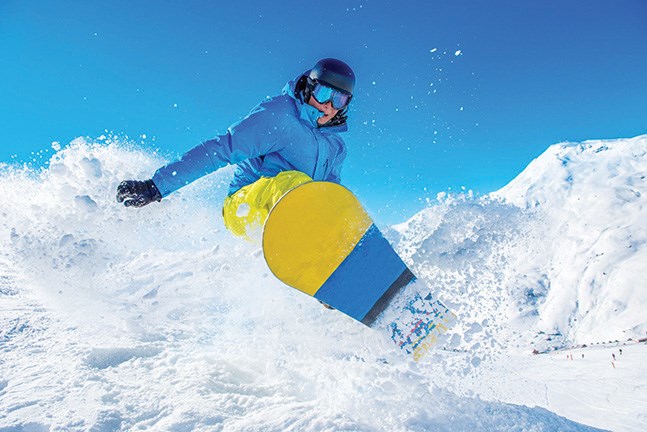There’s been an increase in hospitalizations for two sports popular in the Sea to Sky Corridor, according to statistics released by the Provincial Health Services Authority.
Snowboarding and skiing related hospitalizations have risen by 9.3 and 27 per cent, respectively, between the 2014 to 2015 and the 2015 to 2016 seasons.
In the 2015 to 2016 season, 339 skiers checked into a hospital. Of these, 187 were serious. Medical records show 184 snowboarders had to go to hospital, with 121 of those being serious.
However, while the rising numbers of ski and snowboarding hospitalizations may initially look alarming, the issue can be more complicated.
“There is an increase in awareness — there’s an increase in an understanding to take concussion seriously and do something about it,” said Dr. Shelina Babul, associate director at the BC Injury Research and Prevention Unit at Children’s Hospital.
“So the increase in hospitalizations or patients being seen at the hospital could be attributable to just being aware that something could be wrong.”
In addition, the weather conditions in 2015 to 2016 was a substantial improvement over the prior year, with much better snow, Babul said.
This could’ve meant that more people were hitting the slopes, and therefore the chances for accidents happening would rise alongside ridership numbers.
Between Nov. 1 and March 1 of 2014 to 2015, only about 470 cm of snow fell on Whistler Blackcomb.
This, in itself, was a decrease from the 547 cm that had blanketed the slopes during the same time period of season before.
The average annual snowfall calculated at the time was 1,164 cm.
However, it’s unclear as to what accounts for the difference in hospitalizations between skiers and snowboarders, she said.
There isn’t anything that indicates that one of those downhill sports is more or less dangerous than the other, Babul said.
The greatest increase in ski and snowboard hospitalizations was seen in 20 to 29-year-olds.
This could be because this is the most physically active demographic, Babul said.
An interesting side note — hockey-related hospitalizations went down by 27 per cent during the same time.
In addition to increased concussion awareness, this could potentially be a result of policy changes regarding the sport, as body checking was banned in Pee Wee hockey a few years ago.
Anyone looking to learn more about concussion-related injuries can find help at .




